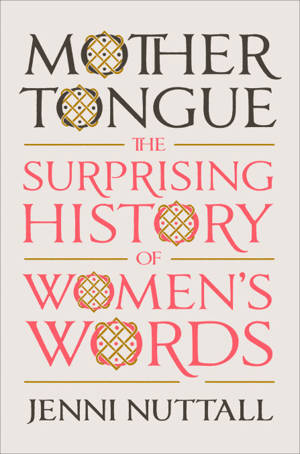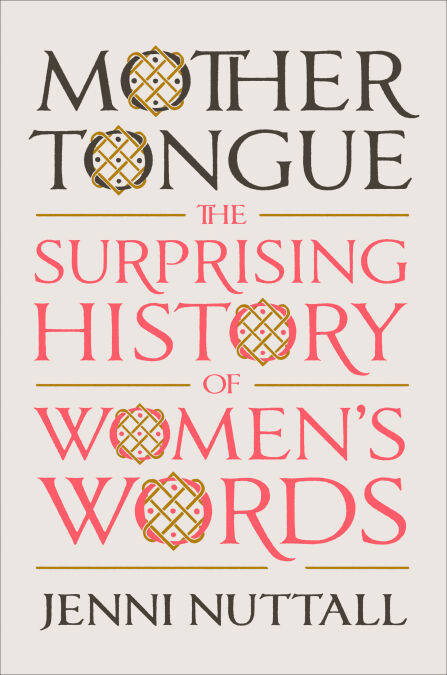
- Retrait gratuit dans votre magasin Club
- 7.000.000 titres dans notre catalogue
- Payer en toute sécurité
- Toujours un magasin près de chez vous
- Retrait gratuit dans votre magasin Club
- 7.000.0000 titres dans notre catalogue
- Payer en toute sécurité
- Toujours un magasin près de chez vous
9,57 €
+ 9 points
Format
Description
“A fascinating look at how we talk about women. . . . Dense with information and anecdotes, Mother Tongue touches on the hilarious and the devastating, with ample dashes of an ingredient so painfully absent from most discussions of sex and gender: humor.” ―Lisa Selin Davis, The Washington Post
“[Nuttall] examines the origins of words used over many centuries to describe women’s bodies, desires, pregnancies, work lives, sexual victimhood, and stages of life. . . . Her research is comprehensive enough that even longtime word enthusiasts will find plenty of new trivia.” ―The New Yorker
An enlightening linguistic journey through a thousand years of feminist language—and what we can learn from the vivid vocabulary that English once had for women’s bodies, experiences, and sexuality
So many of the words that we use to chronicle women’s lives feel awkward or alien. Medical terms are scrupulously accurate but antiseptic. Slang and obscenities have shock value, yet they perpetuate taboos. Where are the plain, honest words for women’s daily lives?
Mother Tongue is a historical investigation of feminist language and thought, from the dawn of Old English to the present day. Dr. Jenni Nuttall guides readers through the evolution of words that we have used to describe female bodies, menstruation, women’s sexuality, the consequences of male violence, childbirth, women’s paid and unpaid work, and gender. Along the way, she challenges our modern language’s ability to insightfully articulate women’s shared experiences by examining the long-forgotten words once used in English for female sexual and reproductive organs. Nuttall also tells the story of words like womb and breast, whose meanings have changed over time, as well as how anatomical words such as hysteria and hysterical came to have such loaded legacies.
Inspired by today’s heated debates about words like womxn and menstruators—and by more personal conversations with her teenage daughter—Nuttall describes the profound transformations of the English language. In the process, she unearths some surprisingly progressive thinking that challenges our assumptions about the past—and, in some cases, puts our twenty-first-century society to shame. Mother Tongue is a rich, provocative book for anyone who loves language—and for feminists who want to look to the past in order to move forward.
“[Nuttall] examines the origins of words used over many centuries to describe women’s bodies, desires, pregnancies, work lives, sexual victimhood, and stages of life. . . . Her research is comprehensive enough that even longtime word enthusiasts will find plenty of new trivia.” ―The New Yorker
An enlightening linguistic journey through a thousand years of feminist language—and what we can learn from the vivid vocabulary that English once had for women’s bodies, experiences, and sexuality
So many of the words that we use to chronicle women’s lives feel awkward or alien. Medical terms are scrupulously accurate but antiseptic. Slang and obscenities have shock value, yet they perpetuate taboos. Where are the plain, honest words for women’s daily lives?
Mother Tongue is a historical investigation of feminist language and thought, from the dawn of Old English to the present day. Dr. Jenni Nuttall guides readers through the evolution of words that we have used to describe female bodies, menstruation, women’s sexuality, the consequences of male violence, childbirth, women’s paid and unpaid work, and gender. Along the way, she challenges our modern language’s ability to insightfully articulate women’s shared experiences by examining the long-forgotten words once used in English for female sexual and reproductive organs. Nuttall also tells the story of words like womb and breast, whose meanings have changed over time, as well as how anatomical words such as hysteria and hysterical came to have such loaded legacies.
Inspired by today’s heated debates about words like womxn and menstruators—and by more personal conversations with her teenage daughter—Nuttall describes the profound transformations of the English language. In the process, she unearths some surprisingly progressive thinking that challenges our assumptions about the past—and, in some cases, puts our twenty-first-century society to shame. Mother Tongue is a rich, provocative book for anyone who loves language—and for feminists who want to look to the past in order to move forward.
Spécifications
Parties prenantes
- Auteur(s) :
- Editeur:
Contenu
- Nombre de pages :
- 304
- Langue:
- Anglais
Caractéristiques
- EAN:
- 9780593299586
- Date de parution :
- 28-08-23
- Format:
- Ebook
- Protection digitale:
- Adobe DRM
- Format numérique:
- ePub

Les avis
Nous publions uniquement les avis qui respectent les conditions requises. Consultez nos conditions pour les avis.






